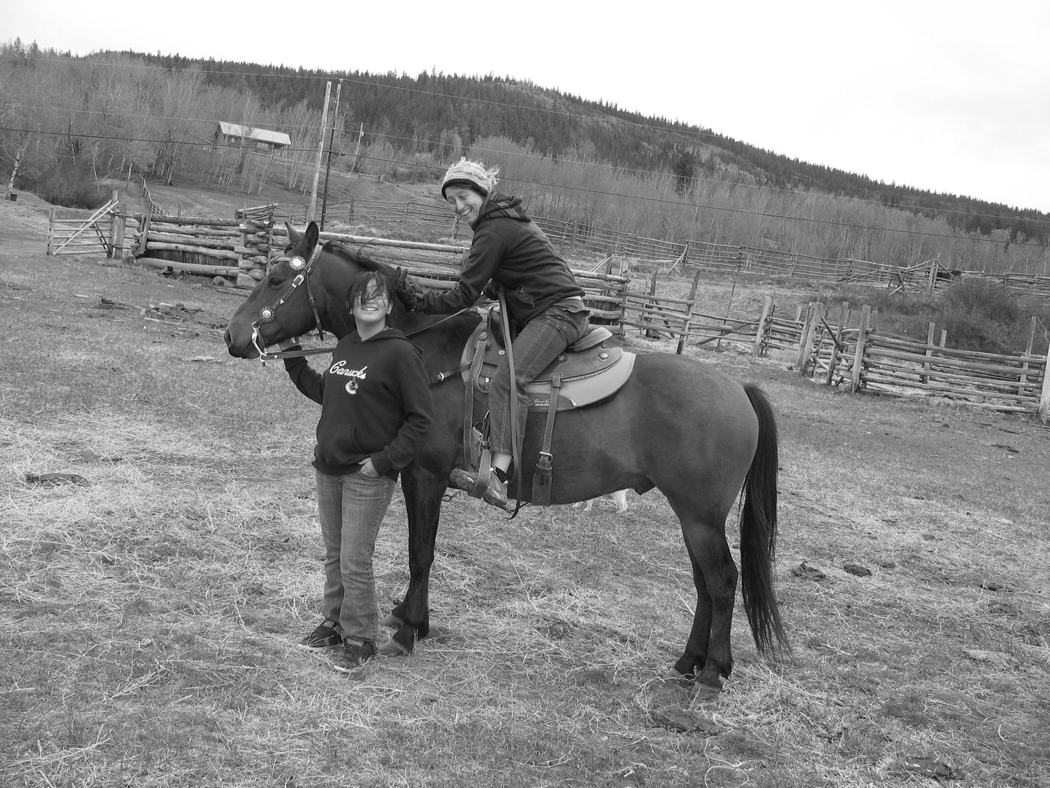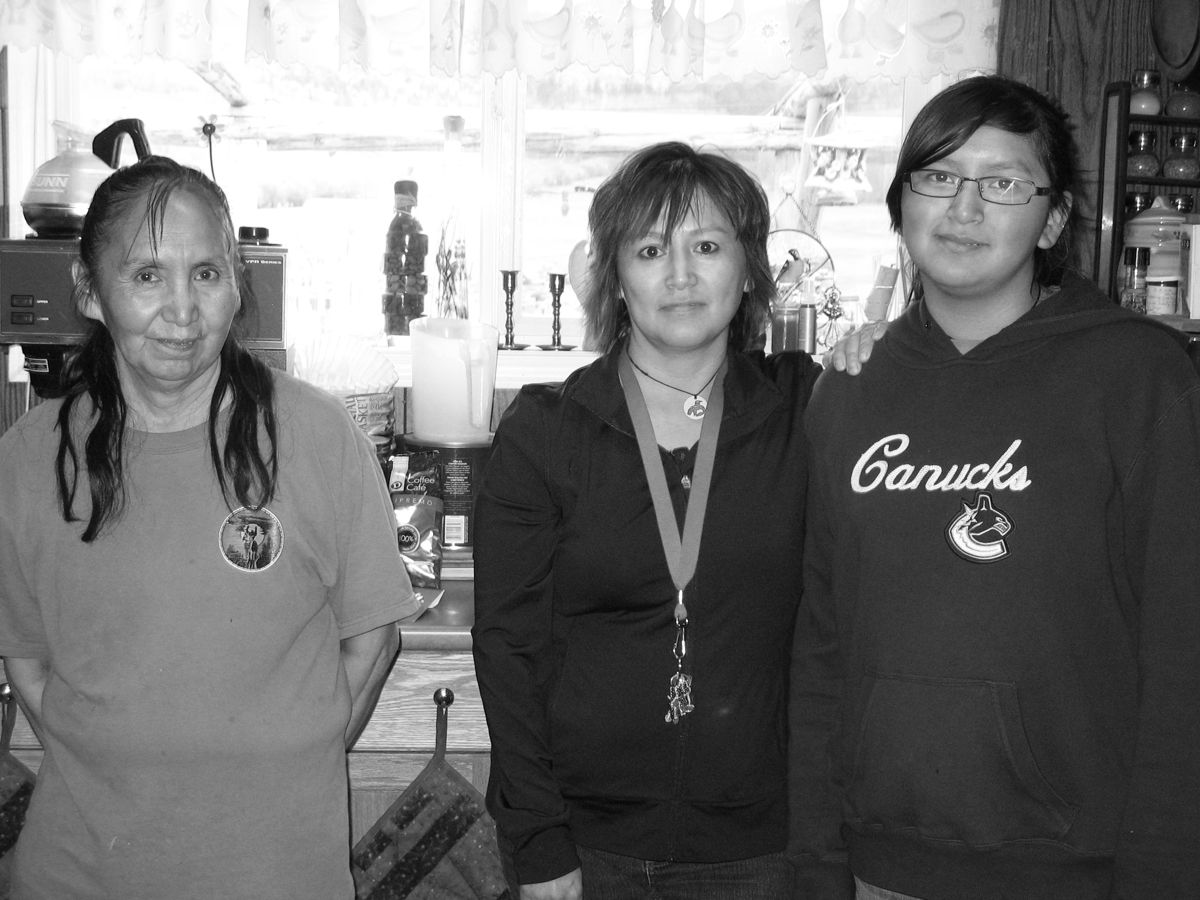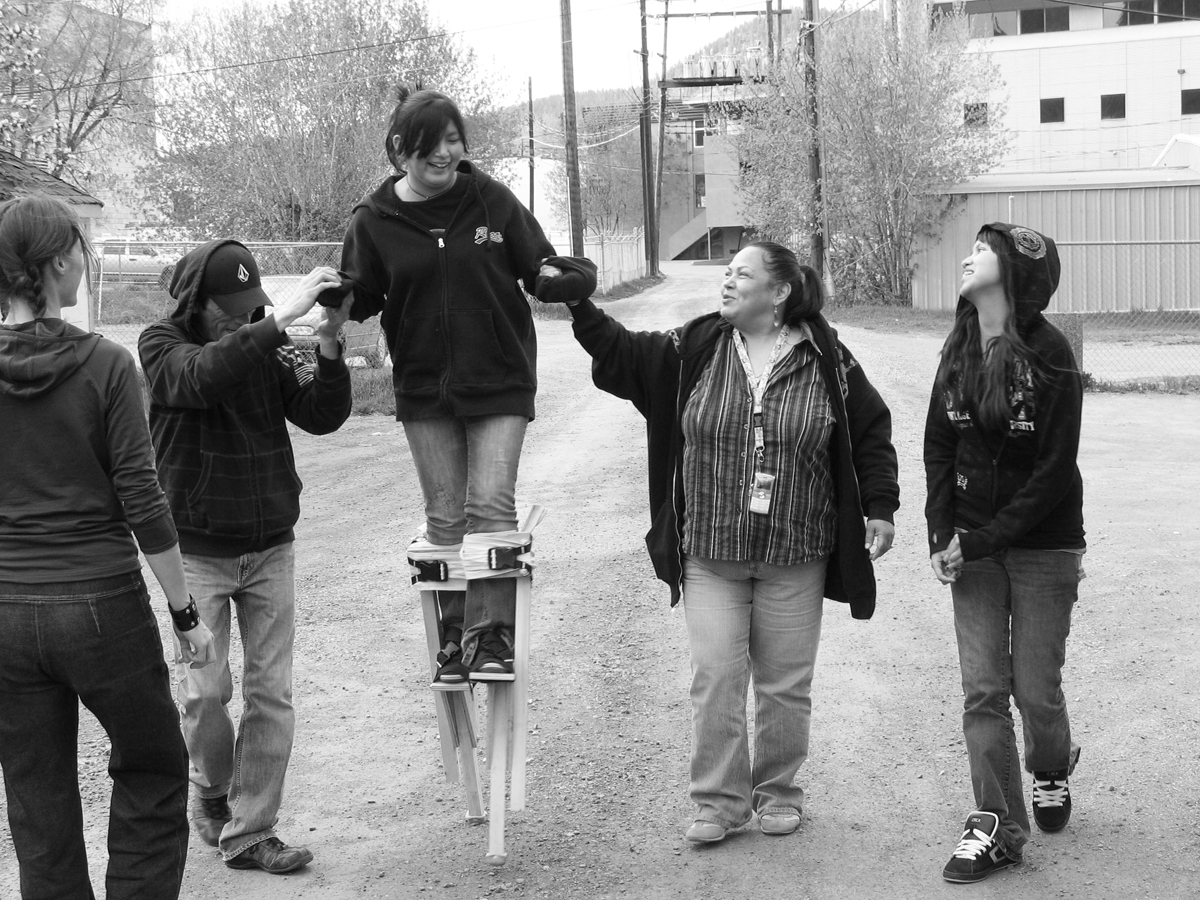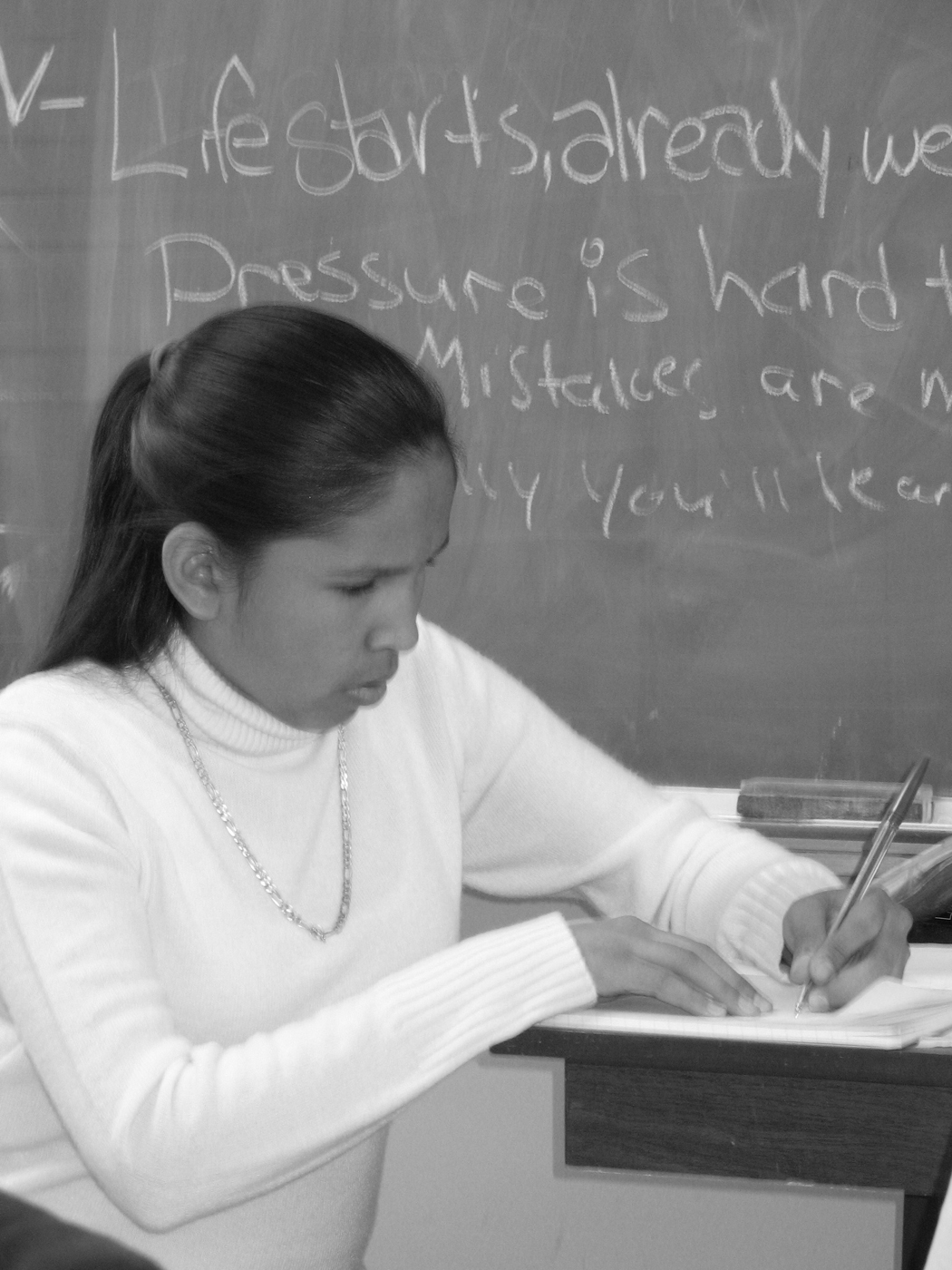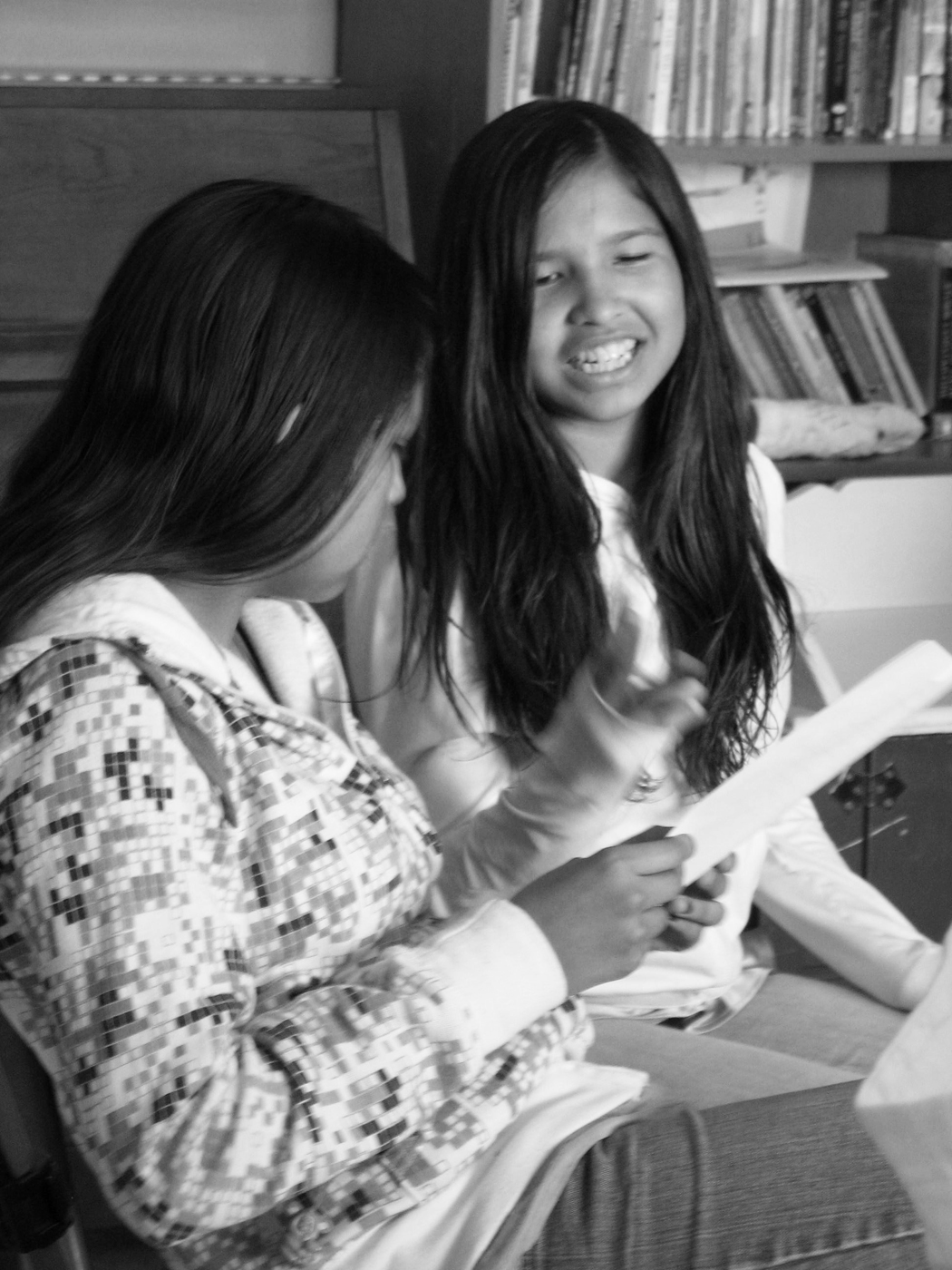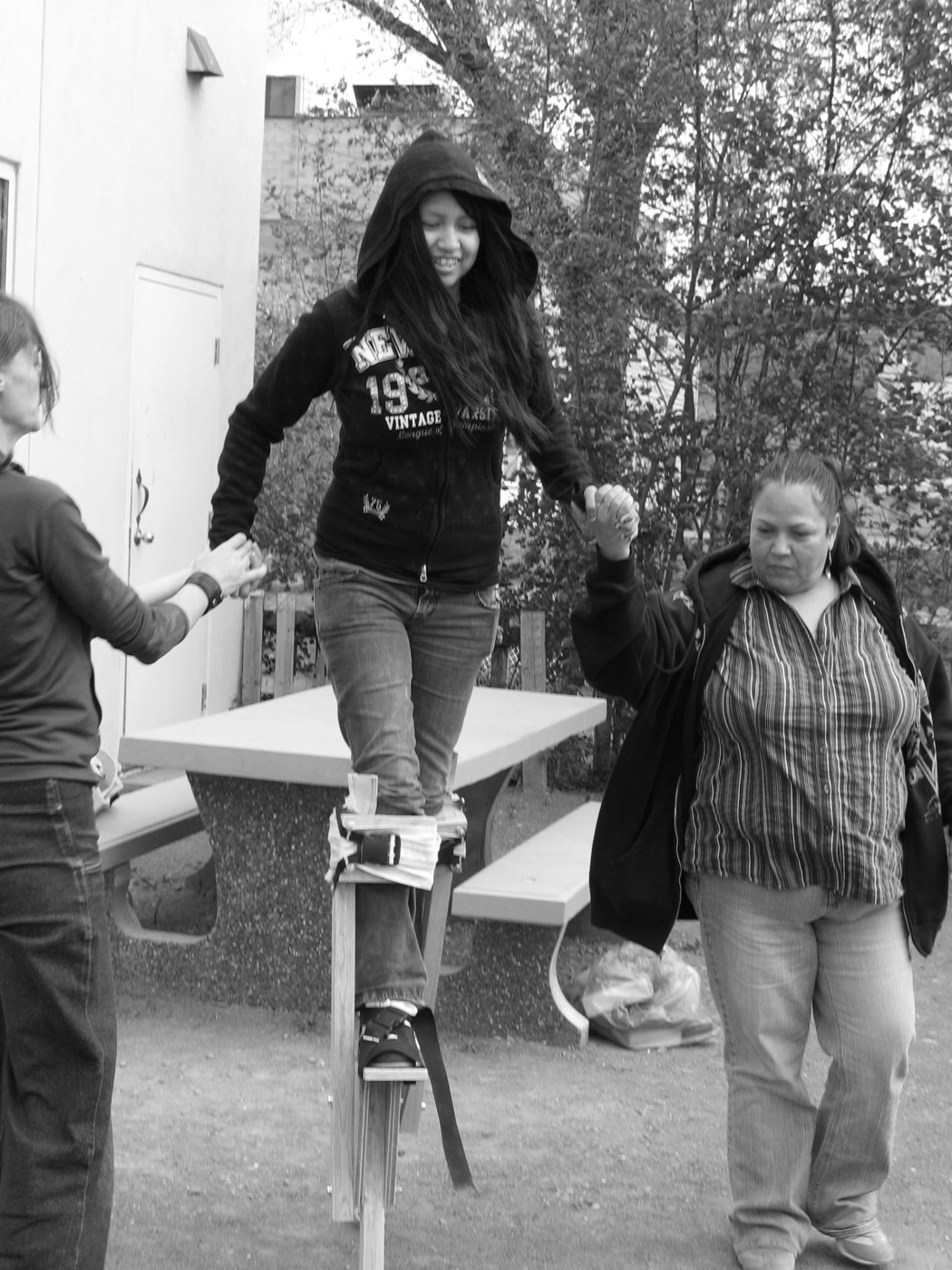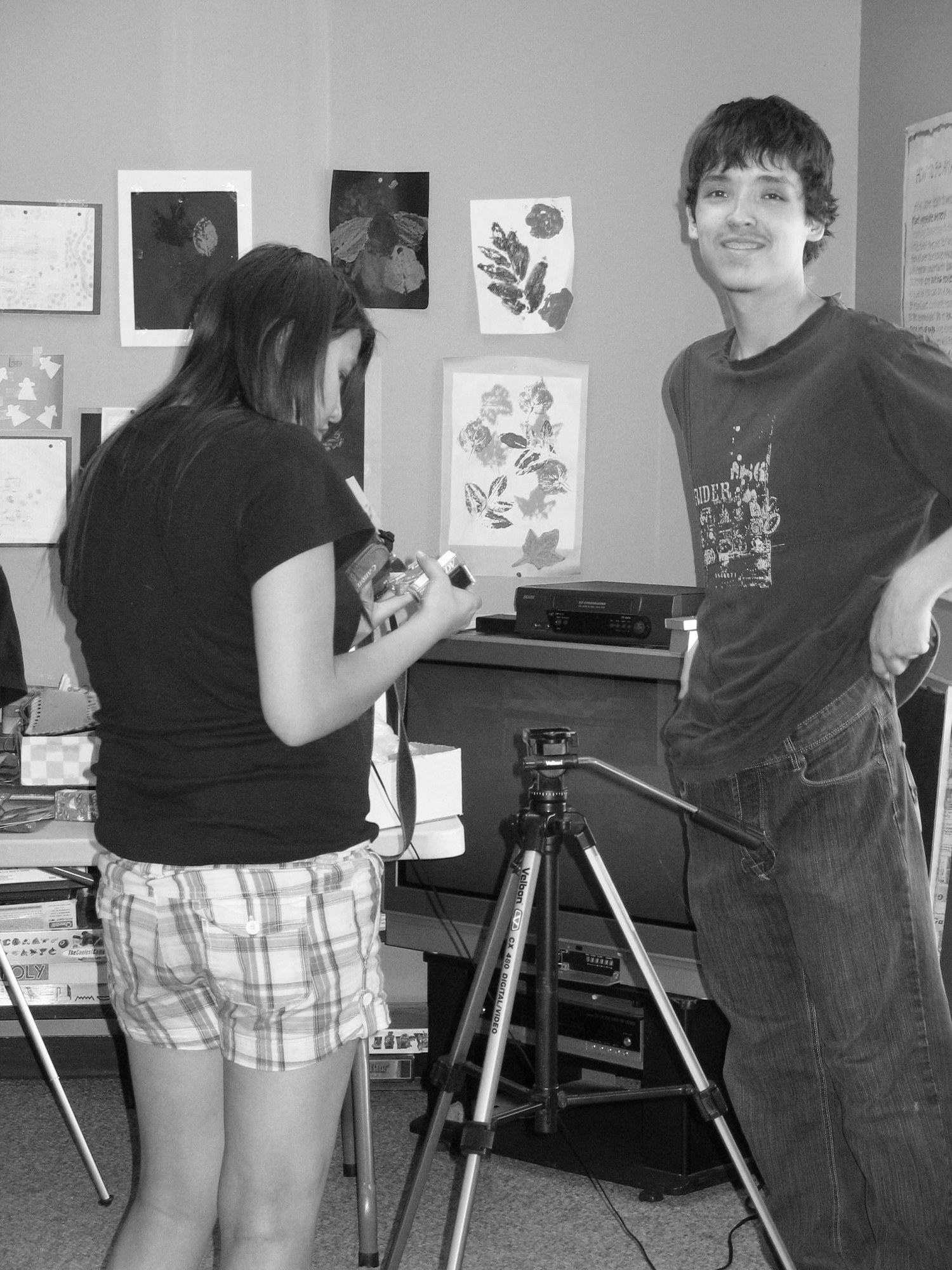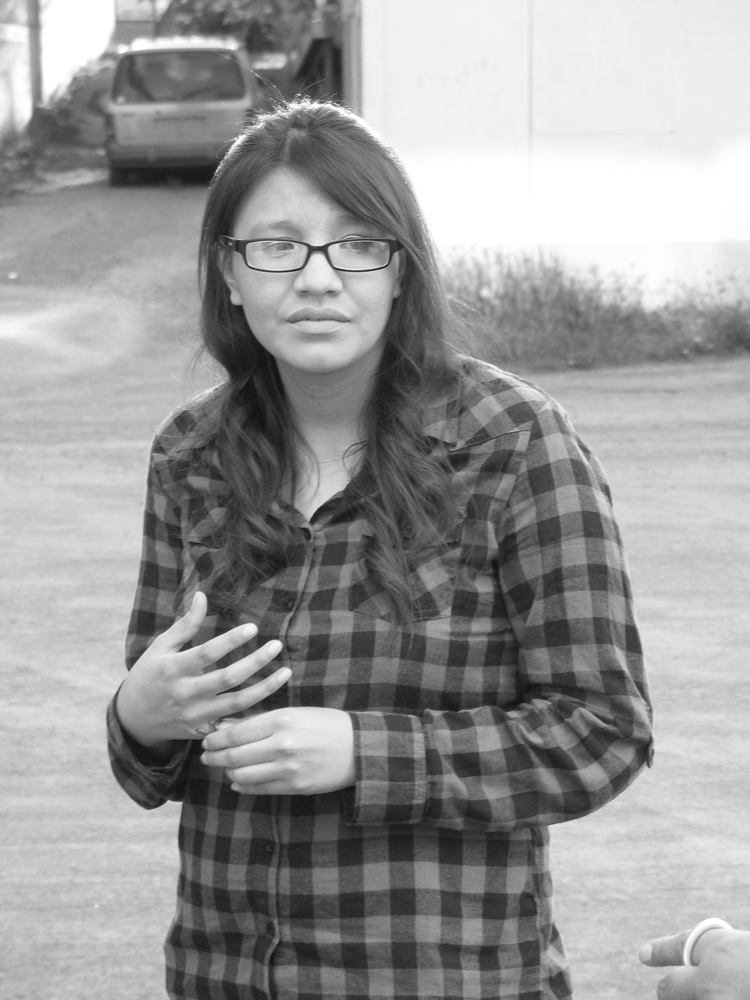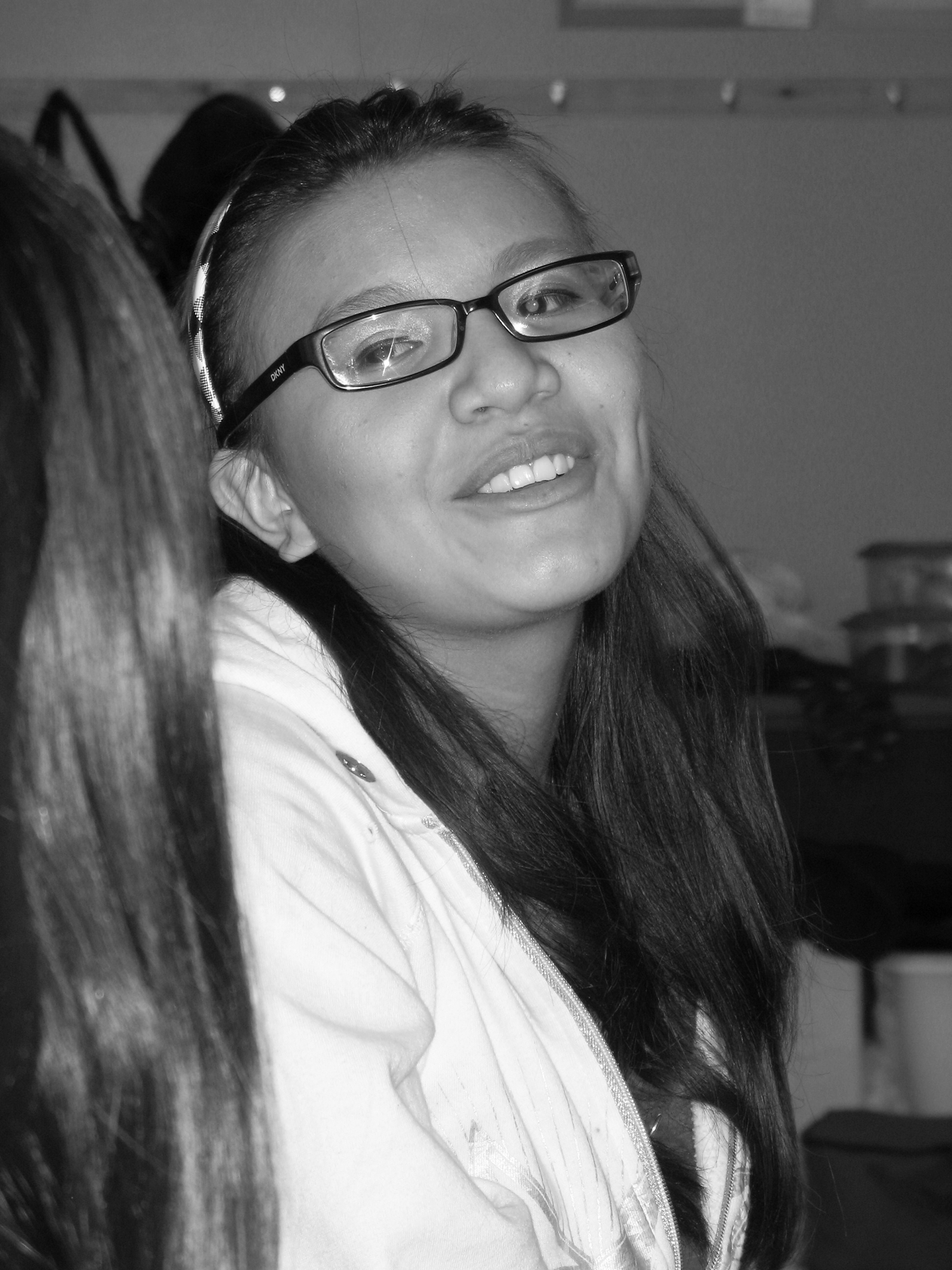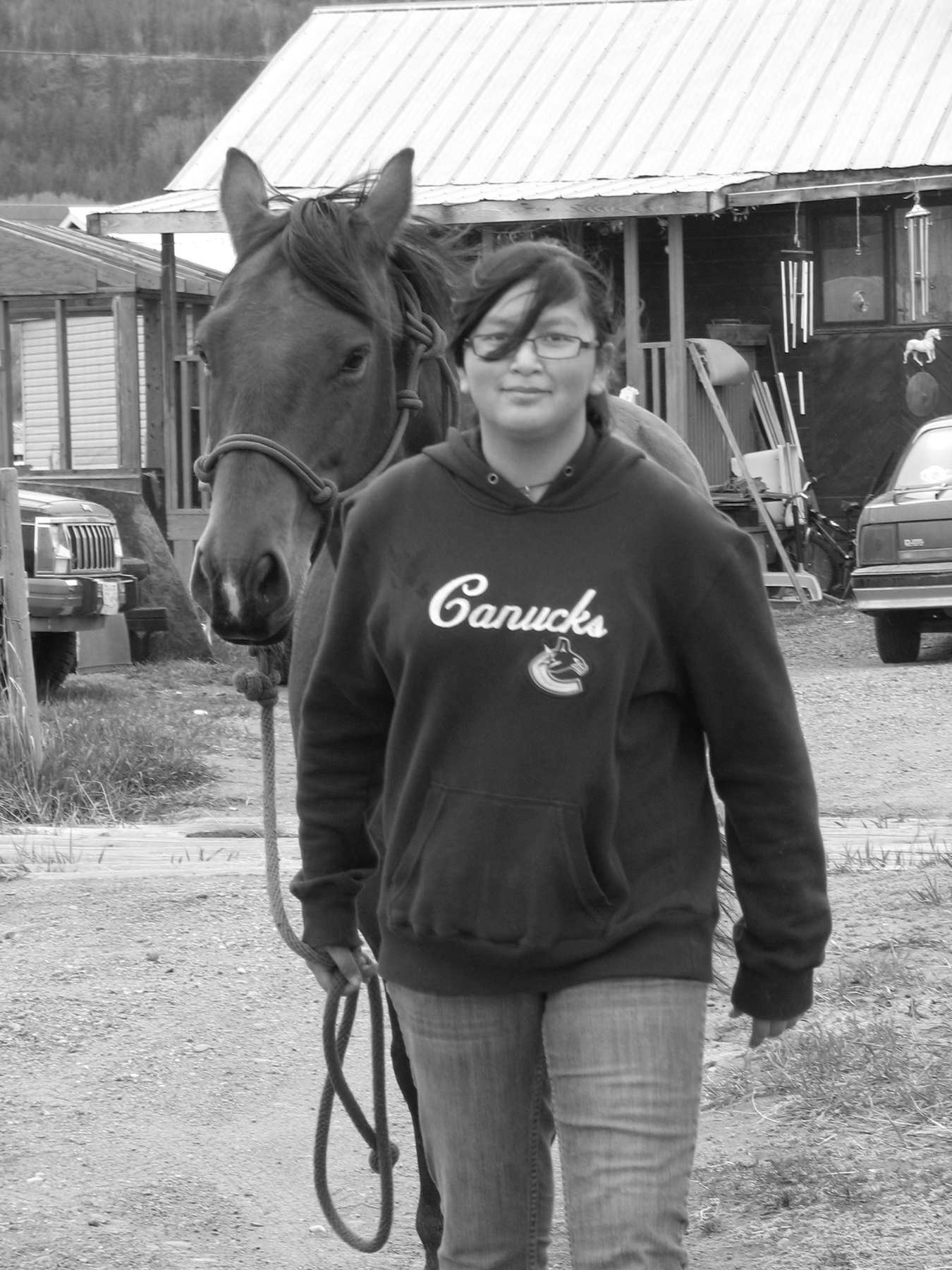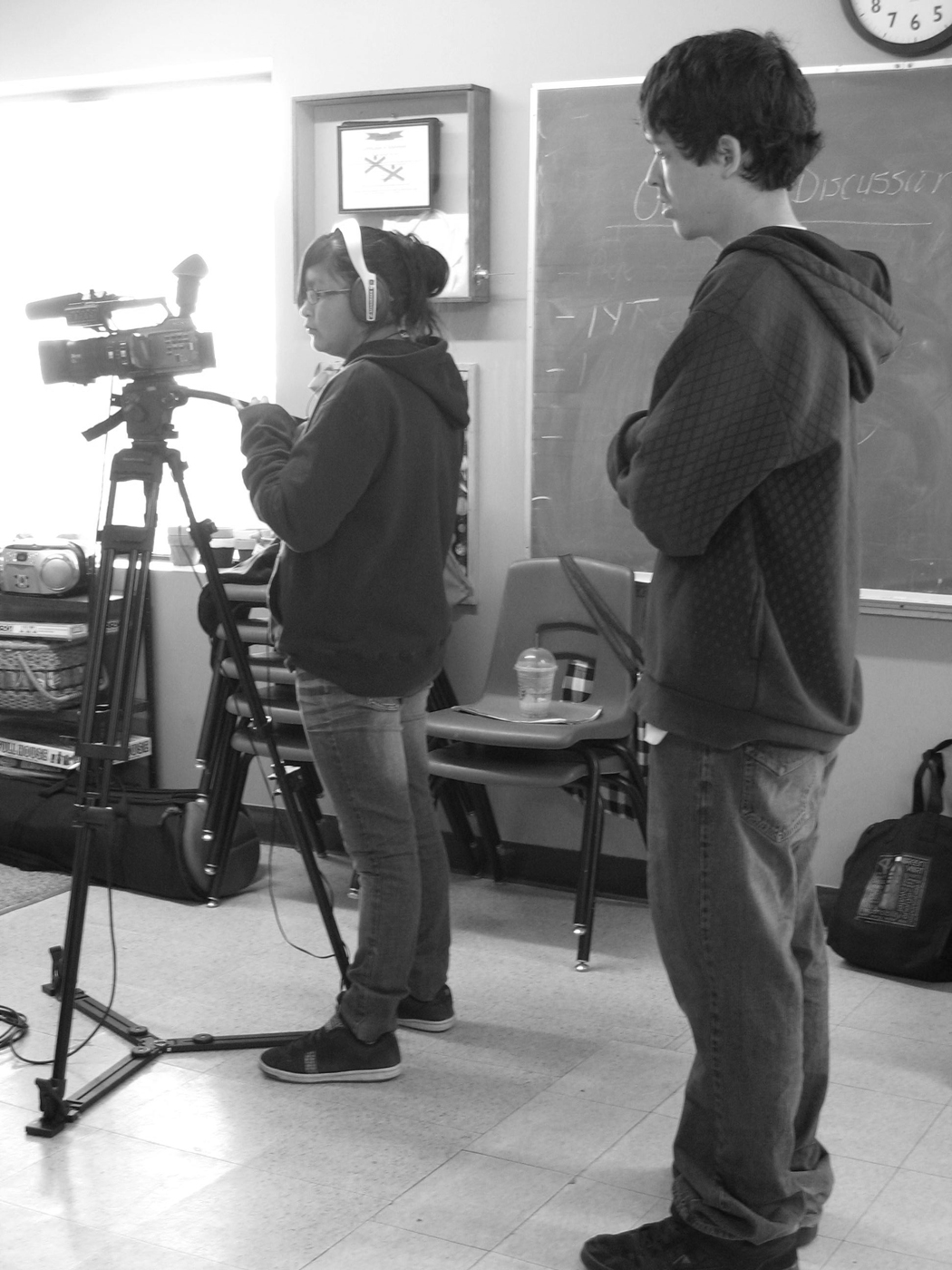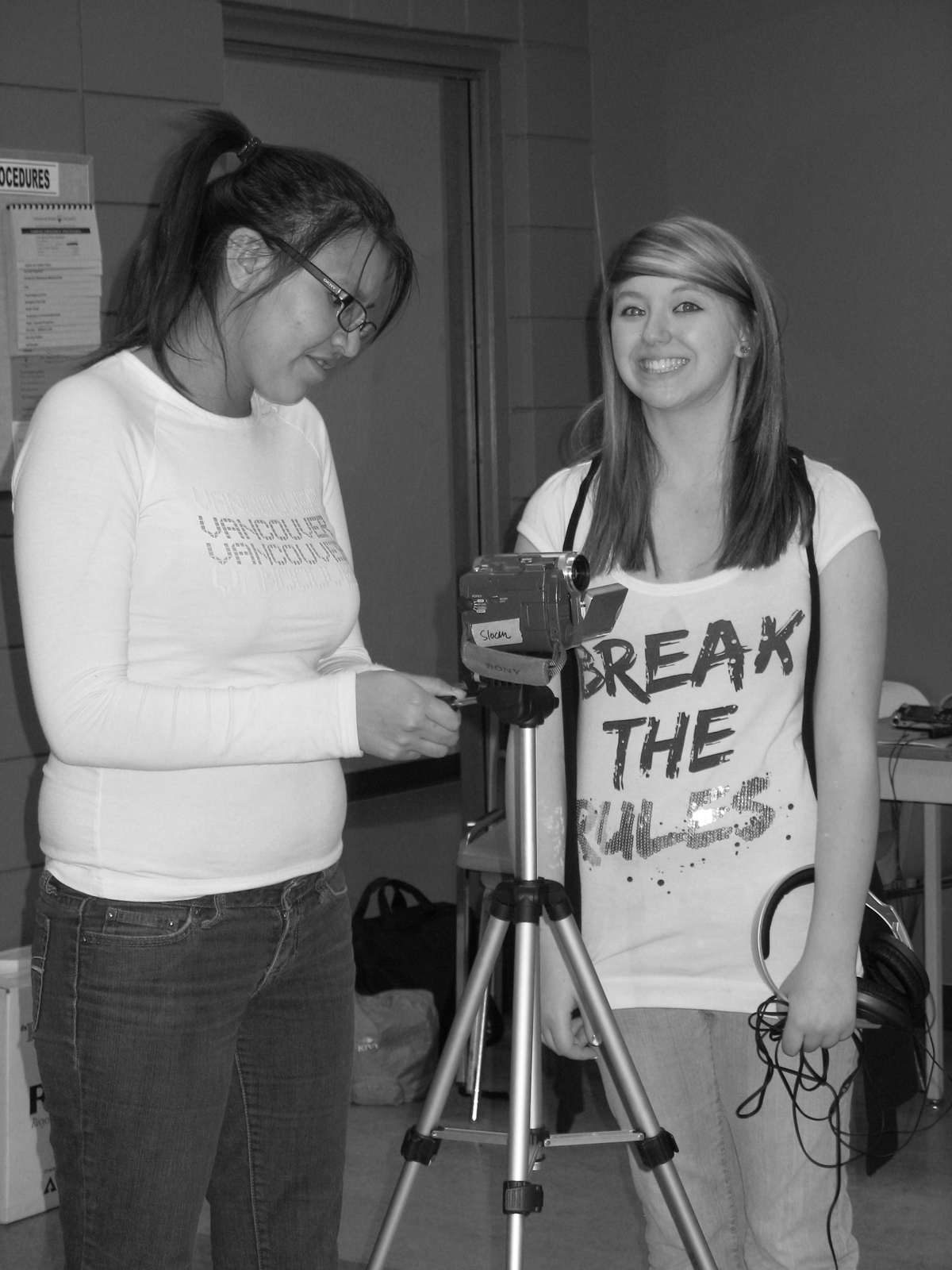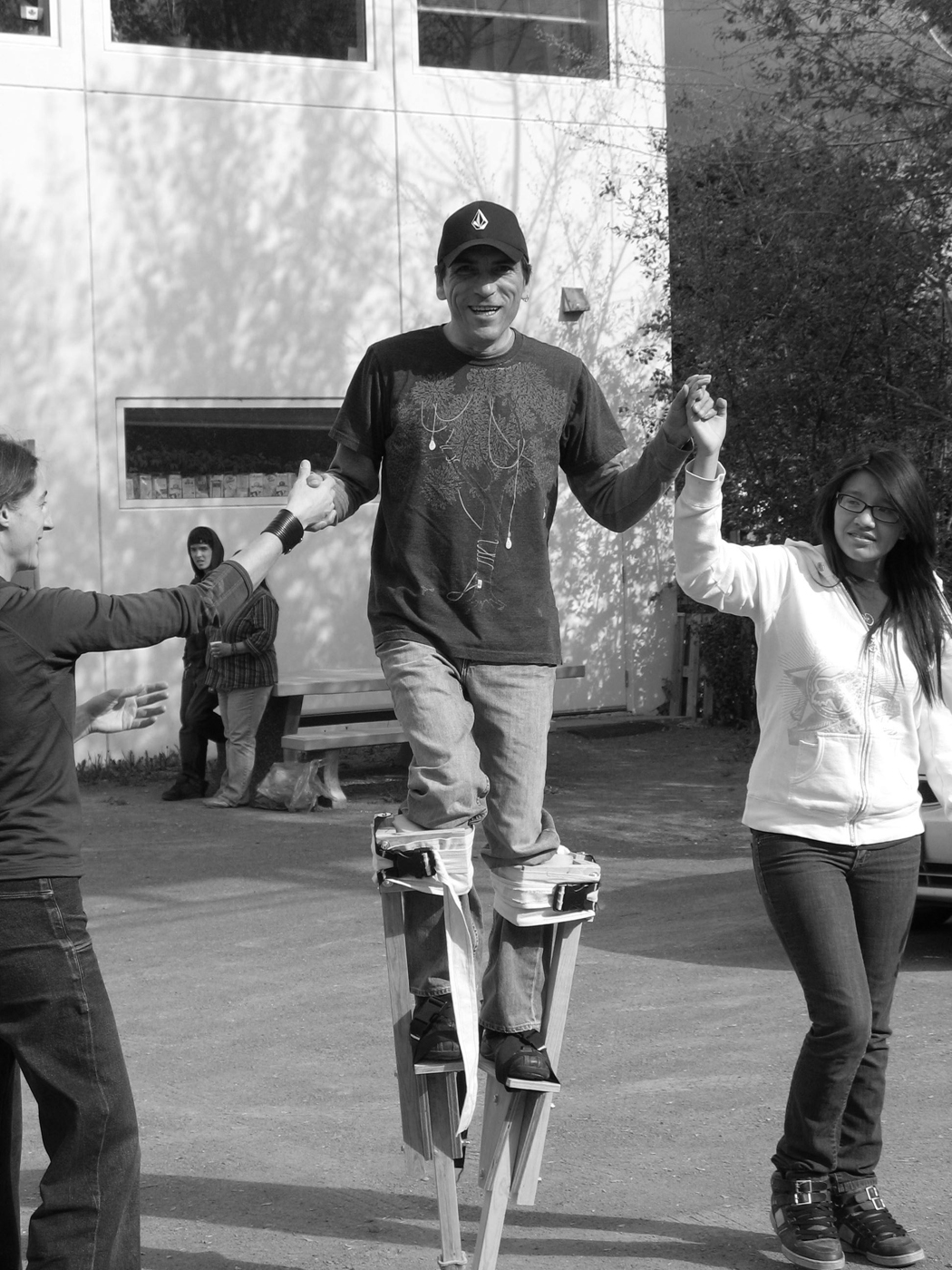Reanne Elkins, Taylor Myers and Larissa Myers present Lieutenant Governor Stephen Pointe with a copy of the Squaw Hall Project DVD.
THE SQUAW HALL* PROJECT: A COMMUNITY REMEMBERS (2009-2011) *historical name
The Squaw Hall project was a multi-year community-engaged theatre and media project produced by Twin Fish Theatre of Nelson, BC and urban ink productions of Vancouver, BC. The artist teams worked with youth and Elders from the Tsilhqot'in, Secwepemc, and Dakelh / Carrier communities in the Interior of British Columbia to facilitate the creation of two original plays and short film reflecting Indigenous stories of the Williams Lake Stampede and the historic open air dance hall, Squaw Hall.
Squaw Hall was built on the Stampede grounds in the mid 1950’s by the White community as they refused First Nations peoples access to the dance hall in town that hosted the Stampede dances which took place during the annual rodeo. The venue was open air and as one Elder said, “they built us a corral.” The deep seated racism in Canadian history and this area of the province, was expressed through the venue’s name, which is derogatory. When we discussed the use for the title of the project the companies felt that the truth of the history was best served by not hiding the truth of the name.
Squaw Hall burned to the ground in 1976.
Nicola had attended the dance when she was just 13yrs old and had spent her teenage years in Williams Lake. In 2007, on a visit to see her mother, who still lived in Williams Lake, she came across an historical plaque placed at the Stampede grounds that commemorated the venue.
The plaque completely lacked any contextualizing of the racism of the name, the venue or the times. Reading it, Nicola felt an urgency to initiate the project in order to try and bring some of the truth of these histories to light. Nicola spoke with Diane Roberts and Rosemary Georgeson of urban ink, an Indigenous and POC theatre company as well as her Twin Fish collaborator, Bessie Wapp and the project was initiated.
During the course of the project the companies created two original plays, one with youth and one with youth and community members. They also trained and facilitated youth to film a documentary of interviews with their Elders speaking to their experiences of the Williams Lake Stampede and growing up in that area. Many stories told fond memories of making the seven day ride to town on horseback to participate in the Stampede. The Indigenous centered histories that emerged painted a complex, painful, irreverent and at times joyful portrait of participating in the Williams Lake Stampede, the second largest rodeo in Canada. First Nations athletes were well known to win competitions year after year, particularly the rugged, dangerous mountain race where riders rode their horses straight down the side of a mountain at break-neck speed.
The Squaw Hall project culminated in a community gathering and feast, two performances in Williams Lake, a tour to local band communities in the region and a tour to the Heart of the City Festival in Vancouver in 2011 where the youth were able to present a copy of the film they made to the Lieutenant Governor, Stephen Pointe. (above). Below are some photos of the project.
Much gratitude to the youth, the artists and community members of the Tsilhqot'in, Secwepemc, and Dakelh / Carrier peoples who hosted us on their lands and in their homes. Seechanelyagh (thank you, Tsilhqot'in), Kukwstsétsemc (thank you, Secwepemc), Sunachailya (thank you, Dakelh / Southern Carrier).
